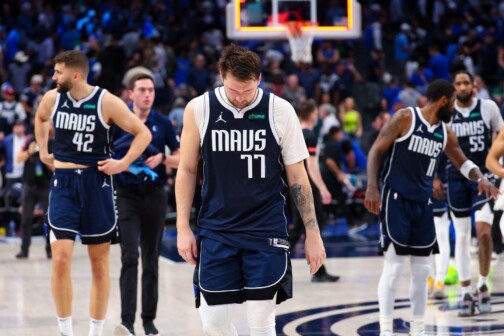Of all the issues candidates discussed during last spring’s Dallas mayoral race, four clearly featured prominently: public safety, better schools, more economic development, and strong neighborhoods. But only one issue sits at the heart of addressing or solving all four: housing. Families with homes create stronger neighborhoods because there is safety in numbers and neighbors, and residents demand better schools and convenient retail. Not to mention the fact that homeownership still remains front and center in the American Dream.
Not considering the recent instability in the national housing market, Dallas doesn’t have nearly enough quality, single-family homes the vast majority of moderate- to low-income families can afford to buy. The most frequently quoted number puts Dallas at a shortage of some 30,000 homes. With a homeownership rate among citizens between 40 and 50 percent, Dallas is woefully below the national average. According to leaders with Builders of Hope, a local nonprofit homebuilder, 60 percent of Dallas residents can’t afford the city’s average home price, $159,000. And, Builders says, only 2 percent of the 12,000 homes currently on the market are affordable for low- to moderate-income families.
The solution that city, nonprofit, and private sector leaders are focusing on is increasing the number of mixed-income neighborhoods. That’s where Philip J. Wise comes in, a founder of Cienda Partners, a private real estate investment company that helps revitalize and rejuvenate parts of our city and others across the country by putting its money where other private-sector real estate investors often won’t go.
“Someone has to be the first,” says Wise, who as a young man cut his teeth as executive vice president for Crow Holdings, where he worked closely with Trammell Crow himself, and served as chairman of the Infomart and vice-chairman of Dallas Market Center. “I had been pretty successful at a relatively young age and I felt guilty. I felt like I needed to give back.”
So, in the late ’80s while on a family vacation, Wise read Millard Fuller’s No More Shacks! “With all our problems, I concluded that homeownership was the fundamental key to family and community development,” he says. Wise’s epiphany led him to be one of the first leaders of Dallas Area Habitat for Humanity, which now, in its 20 years of existence, has built more than 600 homes in Dallas for low-income families—nearly 100 just last year, making it the sixth-largest homebuilder in the city.
“I made a conscious decision on where to invest my time, resources, and energy,” he says. “I didn’t wake up one morning with some rainbow idea. I approached it like buying a stock—who performs the best? I didn’t come to the housing effort heart first. I came at it like a business first.”
And that’s where the mixed-income neighborhoods come in. Five years ago, the federally supported Dallas Housing Authority partnered with KB Homes and Habitat for Humanity to build what the Urban Land Institute featured as a case study on the best public-private housing partnership projects in the country: Greenleaf Village. Just off of Hampton Boulevard in West Dallas, Greenleaf is a mixed-income neighborhood with 200 homes built by KB and 100 built by Habitat. Since its completion, the home values have significantly increased, in some cases, by 50 percent; retail establishments are popping up in the surrounding area; and violent crime has gone down. Wise convened the parties who made Greenleaf a reality, which now serves as a national model for community development and resolving the affordable workforce housing shortage.
Wise has since been instrumental in getting legislation passed in Texas allowing city governments to foreclose on abandoned residential lots with tax liens, putting them in the hands of nonprofit housing developers. The nonprofits must build on the land within two years or give it back to the city. And, as an appointee by former Mayor Laura Miller to the Dallas Faith Communities Coalition, Wise is convening faith, community, and business leaders in West Dallas to address the inevitable needs that come with rebuilding neighborhoods—jobs, schools, and after-school programs.
“But homeownership is at the center of it all,” Wise says. “That’s the key.”
 |
Crayton Webb is manager of government relations for Mary Kay Inc. Webb serves on the board of directors for the Dallas Convention & Visitors Bureau, Dallas Area Habitat for Humanity, the Greater Dallas Planning Council and the citywide fitness initiative, “Get A Move On.” Previously, he was chief of staff for Dallas Mayor Laura Miller and an investigative television news reporter for CBS 11.




